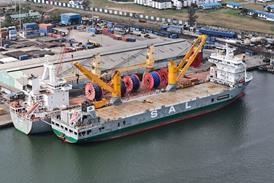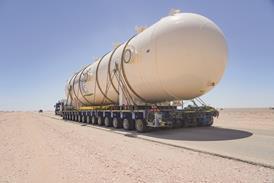The UK is moving ahead with plans to establish up to ten free ports (also known as free-trade zones) in a bid to unlock post-Brexit opportunities and support logistics supply chains.

The government has launched a consultation on free ports, with the aim of announcing the location of the new zones at the end of this year so that they can open for business in 2021.
Commenting on the government’s announcement, Tim Morris, ceo of the UK Major Ports Group, a trade association representing most of the larger commercial ports in the country, said: “Experience from around the world demonstrates that free ports can be transformational in the right circumstances.
“For the UK they offer the opportunity to boost global gateways for trade and grow investment and jobs in coastal communities around the UK. It is vital that the government sees free ports as more than just about tariffs – aspects like planning, connectivity and skills are essential. The process to achieving free port status must be a credible one, open to compelling bids and fair and evidence based in the selection of locations.”
In the North East of the UK, the port of Tyne has pledged to make a success of a free trade zone to support existing manufacturing operations and the growth of the region’s target sectors, including renewable energy and pharmaceuticals.
Matt Beeton, ceo of the port of Tyne, explained: “A free trade zone targeted at growing the region's advanced manufacturing and renewable energy clusters would boost global trade across key North East locations, helping to secure many existing supply chains and attract many more into the region from overseas.”
In the coming months, the port of Tyne will work with local and national political and business stakeholders and organisations to progress its free port bid.
Also vying for free port status is Teesport in North Yorkshire, part of the PD Ports Group. Chief operating officer and vice chairman Jerry Hopkinson said: “In our view, there really is no better case than Teesport. We have one of the deepest rivers in the UK and can take some of the world’s biggest ships… Free port status could help to drive industry, which is globally moveable, to choose to locate here in the Tees Valley.
“We have a skilled workforce and there is an appetite across the region to invigorate industry and see greater investment in development. Having a free port on Teesside would not be a silver bullet, but rather a catalyst for growth.”
















